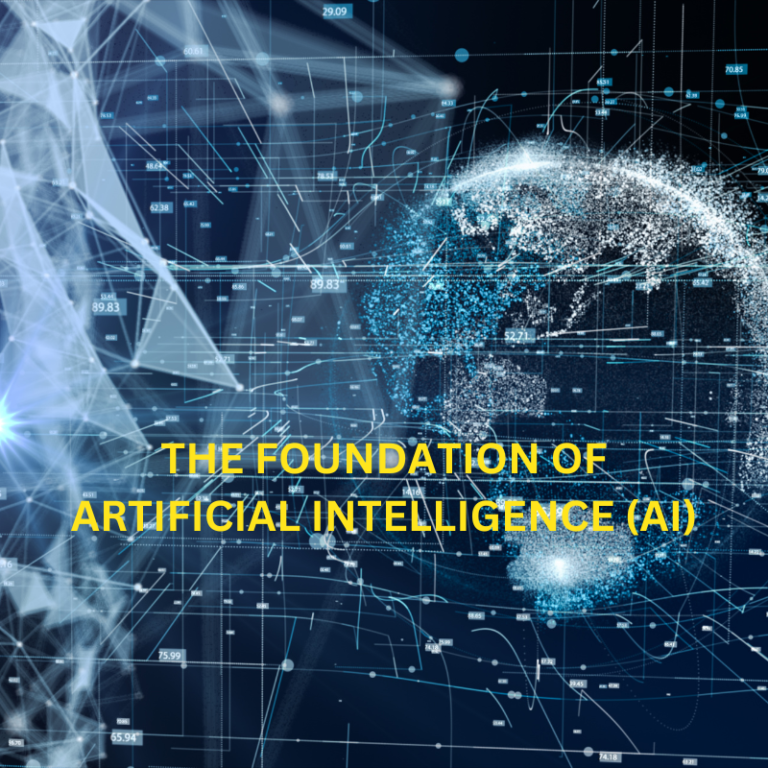Machine Learning Vs Artificial Intelligence – Applications
With the rise of technology, there has been an increase in the use of terms such as machine learning and artificial intelligence.
In general, these terms are used repeatedly, but there is a difference.
Artificial intelligence (AI) and machine learning (ML) are two of the most popular buzzwords in the tech industry these days—but what do they mean, and what’s the difference between them?
To put it simply, AI is a broad term that refers to any computer system that can complete tasks in a way that mimics human behavior.
ML, on the other hand, is a subset of AI that focuses specifically on teaching computers to learn from data.
In this post, we’ll break down the difference between two talked technologies – artificial intelligence and machine learning along with their basic applications and future scope.
Machine Learning (ML)
Machine learning enables machines to learn from past data or experiences without being explicitly programmed.
For example, if you use a personal assistant such as Google Assistant, they use machine learning to provide you with recommendations based on your location, search history, and past behavior.
Artificial Intelligence (AI)
“Artificial intelligence is a technology using which we can create intelligent systems that can simulate human intelligence.
AI is not just limited to human brains; it can also be used for animals and other objects. For example, there are AI-powered robots that can vacuum your floors and do other household chores, identifying cancer cells in patients.
Applications 
In today’s world, machine learning Vs artificial intelligence is being applied in several ways.
Here are just a few examples of how machine learning and artificial intelligence are being used in different sectors.
1. Predictive Maintenance
- Predictive maintenance is a technique that uses AI/ML to predict when equipment is likely to fail.
- This information can then be used to schedule repairs or replacements before the equipment fails.
- This is beneficial because it can help avoid downtime and disruptions in production.
- Predictive maintenance is being used in a variety of industries, including manufacturing, automotive, aviation, and more.
2. Automated Vehicles
- One of the most promising applications of AI/ML in transportation is in the area of automated vehicles.
- With the ever-growing demand for faster and more efficient transportation, many companies are looking into the possibility of using AI/ML-powered autonomous vehicles to move goods.
- Several companies have already deployed driving cars, self-driving trucks, and buses on a limited basis.
- As the technology continues to evolve, we’ll likely see increased deployment of fully autonomous vehicles in the future.
3. HealthCare
- AI and ML are already being used in healthcare to diagnose diseases, predict patient outcomes, personalize treatments, and improve decision-making. For example, AI-powered chatbots can be used to provide personalized health information to patients 24/7.
- These chatbots can also help schedule appointments, track medication reminders, answer common questions about conditions, and provide suggestions for healthy lifestyle changes.
4. Finance
- AI and ML can be used to analyze data related to past financial performance to make predictions about future trends.
- This information can be used to make well-informed decisions about things like pricing, investment strategy, etc.
5. Risk Management
- AI and ML can help identify risks that may not be apparent using traditional methods.
- This information can be used to develop strategies for mitigating those risks.
6. Make better decisions
- Another popular use case for AI is decisions.
- By analyzing large data sets, AI systems can help you make better decisions about everything from pricing to inventory levels to hiring.
- Essentially, AI can help you make sense of all the data you have at your disposal so you can make informed decisions that will help your business grow.
7. Customer Service
- In today’s world, customers expect fast, effective customer service. However, most businesses struggle to meet these expectations due to understaffing or other resource constraints.
- Using chatbots or other automated customer service systems, you can provide a higher level of service without having to hire more staff.
- These systems can answer common questions, route customers to the right department, and even escalate issues when necessary.
8. Marketing
- Machine learning is also being used in marketing.
- By analyzing customer data, businesses can identify patterns that can help them target their marketing efforts more effectively. For example, suppose a certain type of customer is more likely to purchase a certain type of product. In that case, businesses can use machine learning to target that customer with relevant marketing messages.
- This helps businesses save money by only targeting customers who are more likely to be interested in their products or services.
9. Cyber Security
- In cyber security, machine learning is being used to help businesses protect themselves from cyberattacks.
- By analyzing data about past attacks, businesses can use machine learning to identify patterns that can help them prevent future attacks. For example, if a certain type of attack always comes from a specific type of source, businesses can use machine learning to block that source before it has a chance to launch an attack.
- This helps businesses stay one step ahead of criminals and keep their data safe.
Conclusion
In conclusion, Machine learning is a subset of artificial intelligence that deals with the ability of machines to learn from data without being explicitly programmed. Artificial Intelligence is a broader term that encompasses machine learning and other technologies such as natural language processing and computer vision.
Artificial Intelligence refers to any computer system capable of completing tasks with some level of autonomy while machine learning is a subset of AI focused specifically on teaching computers how to use data in order to make better decisions over time.
Both are invaluable tools for businesses looking to maximize efficiency with deep learning and big data. This provides customers with better service experiences that are decision-based. So don’t forget about either when you’re strategizing your digital transformation journey! While they are both related fields, they are distinct from one another.







![What is Augmented Reality? | 11 Strategic Benefits of AR for Businesses [2023]](https://saaslyft.com/wp-content/uploads/2023/03/Untitled-design-37-768x309.png)


